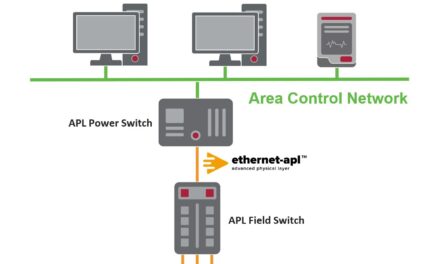Chris Dee, executive director of the British Compressed Air Society, discusses how a compressed air system should be installed and maintained correctly to ensure energy efficiency and how membership of BCAS can help.
Compressed air is often regarded as the fourth utility, yet, despite being a pivotal component of many manufacturing and industrial processes, its efficient use can sometimes be overlooked. A vital part of managing a compressed air system is in the servicing and auditing – both of which have varying amounts of regulation. It is advisable to have regular energy audits undertaken on all aspects of the compressed air system as they don’t always run to their best potential, with incorrectly specified equipment, leaks, poorly sized pipework, long distance, excessive bends, fittings and improper use all affecting energy efficiency levels.
For some years responsible compressed air equipment manufacturers and suppliers have been offering energy audits as part of their service and maintenance routines, along with data logging exercises and leak detection surveys. However, until recently there was no framework for manufacturers and suppliers to adhere during an audit, meaning results could vary in terms of accuracy. Recognising this, BCAS undertook over four years of work together with the ISO Technical Committee 118, culminating in the introduction of a new international standard for compressed air system assessment, called EN ISO11011 in August 2013 (Compressed air – Energy efficiency – Assessment).
In March this year, the standard has gained even more traction and has been formally accepted by the European Committee for Standardisation (CEN) as an approved European Standard for compressed air efficiency. The EN ISO 11011 assesses compressed air use, critical production functions and poor system performance. Such assessments help to identify and quantify energy waste, the balance between compressed air supply and demand, energy use and total compressed air demand. Prior to EN ISO 11011, the onus was on individual manufacturers and suppliers to decide how best to measure energy consumption and what recommendations to make to their customers.
With the introduction of EN ISO 11011, companies can now offer advice and carry out auditing procedures on a level playing field. Like-for-like energy audits can only benefit the end-user and make it easier for them to decide what action to take. For example, one of the key features of ISO 11011 is to establish a ‘baseline’ performance of a compressed air system. The purpose of base lining is to understand fully the current performance levels and costs of a compressed air system, and to correlate the results with the plant’s present production levels.
As improvements are made to the compressed air system, it will be possible to compare the new measurements with the original baseline, and therefore estimate improvements. BCAS encourages end-users to see the value in assessing their compressed air usage within a standardised framework in order to define, with greater accuracy, system energy consumption and performance. In doing so, EN ISO 11011 should deliver sustainable and measurable results for the businesses that take it on board, saving energy and reducing carbon emissions.
There is continuing concern that despite the risks, there are currently no formal accreditation schemes for maintaining compressed air systems, so end-users could well be receiving poor energy saving advice. Every compressed air system, virtually without exception, should have a Written Scheme of Examination in place, which the system should be regularly inspected in accordance with. The Written Scheme of Examination is a legal requirement under the Pressure Systems Safety Regulations 2000 and carries a potential fine if you are caught without one. However, the worry is that many businesses running compressed air systems either ignore this or are simply not aware of it, as there is no thorough policing.
The British Compressed Air Society offers courses for those involved in the installation and maintenance of compressed air systems. However, these are voluntary, and so there is a real need to introduce recognised training programmes and an official accreditation scheme for service engineers working on compressed air systems. Both the Written Scheme of Examination and EN ISO 11011 are in place to support end-users of compressed air. Legislation offers a standardised service that can be trusted and used across the industry. However, there is much more to be done.
In the absence of formal accreditation, companies working in the compressed air industry can demonstrate their professionalism and competence as well as their commitment to health and safety and best practice by joining BCAS. Membership is by peer review and members have to adhere to the society’s codes of conduct. Members can also choose to participate in the BCAS AIRSAFE register, which promotes the credibility and professionalism of BCAS members as identified by customer feedback.


